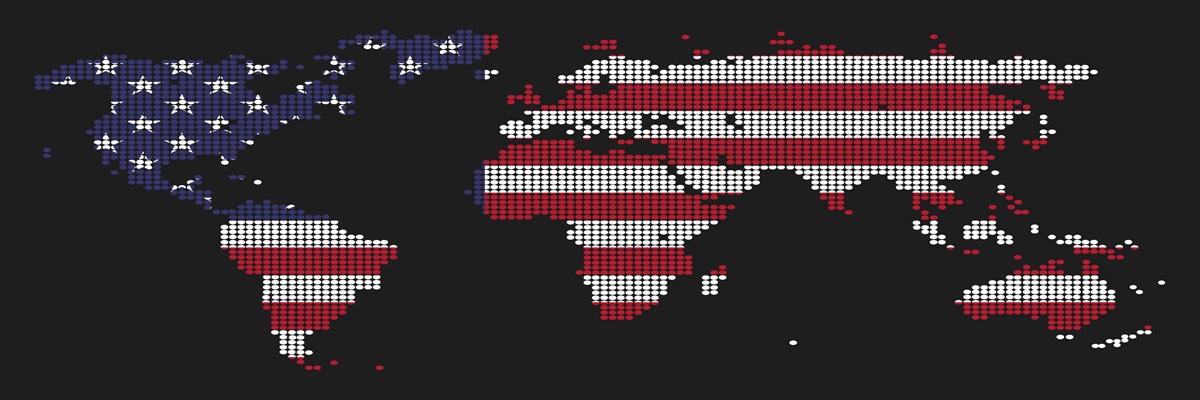Diplomacy
Is the United States Still the Sole Superpower of the World?

Image Source : Shutterstock
Subscribe to our weekly newsletters for free
If you want to subscribe to World & New World Newsletter, please enter
your e-mail
Diplomacy

Image Source : Shutterstock
First Published in: Dec.10,2024
Jan.06, 2025
With the rise of Russia and China, the world is shifting dramatically from a unipolar US-dominated order to a multipolar one.
Russia’s strategic alliances, along with China’s Belt and Road Initiative and economic growth, are reshaping global power dynamics. On the other hand, the United States’ military interventions and isolationist moves have raised a critical question: can it adapt to this new global reality, or will it continue to lose influence on these emerging powers?
The Decline of U.S. Global Dominance
The global order is witnessing a transformative period, from a unipolar order under US dominance to a multipolar one. The latter provides other major powers an extensive opportunity to challenge the US-led global system. China, Russia, and even the middle powers use this waning US influence to expand their global political clout. The rise of these powers is altering the global balance of power. Numerous US policy decisions have weakened its position in the global sphere. The militarization approach of the United States and the successive unpopular government policies have made its fall inevitable.
The realist theorists attempt to attribute these changes in global power distribution as a result of the anarchic world system. China’s Belt and Road Initiative (BRI) and its growing economic might present the strongest challenge to the US economic and military hegemony in the world. The BRI has posed it as an indispensable economic partner of the countries across the three continents including Africa, Asia, and Latin America due to the investment of trillions of dollars in infrastructural projects. Moreover, its trade volume reached $6 trillion in 2022 surpassing the US trade volume of $4.9 trillion. This economic might has enabled it to entice states that became weary of the US’s harsh approach towards the developing and underdeveloped world.
The Emergence of a Multipolar World Order
Furthermore, globalization has also prompted the Third World countries to partake in knowledge and economic competitions with the Western world. The liberal theorists hold that the leveling effect of globalization enables it to redistribute power. The emergence of this new multipolar world order has made it difficult for the US to establish and maintain its influence over the globe and remain relevant in global governance. The rise of BRICS, with its share of 37.4 percent in the global GDP in 2023, and its decision to introduce its currency for mutual trade have challenged the US financial system, hastening the decline of the US-led economic and political order. Moreover, the US policies under a few former presidents have also contributed to the rapid decline of the country’s hegemony.
United States military interventions in Iraq, Afghanistan, and the Middle East, its covert involvement behind sparking the Russia-Ukraine conflict, and its compliance in Israel’s war crimes in Gaza have all damaged Washington’s global standing. Its deadliest invasion of Iraq, under the pretext of unverified reports of WMDs, undermined its credibility and destabilized the whole Middle Eastern region. In addition, the United States failed invasion of Afghanistan also contributed to its malignity around the globe. Russia and China were emboldened by such US failures and challenged it economically, militarily, and ideologically. Leadership crises in the United States have also undermined its international standing.
President-elect Donald Trump’s previous government damaged America’s reputation to a great extent. His decision to withdraw from the Paris Accord and his criticism of NATO also inculcated distrust among the country’s allies. The US also holds a reputation for betraying its allies after achieving its ambitions. Pakistan is one of the best examples of this. The United States had always had a transactional relationship with Islamabad. After achieving its regional ambitions, it has always imposed sanctions on the country. Therefore, the US allies have started thinking of it as an unreliable ally.
President-elect Donald Trump’s re-election has once again inculcated frustration among the US allies. His stance on Ukraine has already been criticized by its allies. President-elect Donald Trump seeks an immediate and peaceful resolution of the Russia-Ukraine conflict. Recently, he called for an immediate ceasefire in Ukraine after meeting Ukrainian President Volodymyr Zelensky. He advocates a non-interventionist policy. Therefore, it is believed that the Russia-Ukraine conflict would come to an end after his final selection as the US President.
Moreover, his presidency might also affect the unity of NATO, as he has always been critical of funding it. His “America First” approach also contributes to decreasing US influence and dominance over the world. President-elect Donald Trump’s crackdown against immigrants has also contributed to the United States’ isolation in the American region and beyond. In addition, Russia and China’s rise and BRICS expansion have also provided the middle powers and third-world countries a novel opportunity to form new alliances. The election of President-elect Donald Trump’s re-election, de-dollarization by BRICS, and the swift rise of Russia and China, along with other middle powers, all are contributing to the rapid decline of the US influence and dominance over the world.
First published in :

The researcher and writer that publishes on South Asian geopolitics
Unlock articles by signing up or logging in.
Become a member for unrestricted reading!